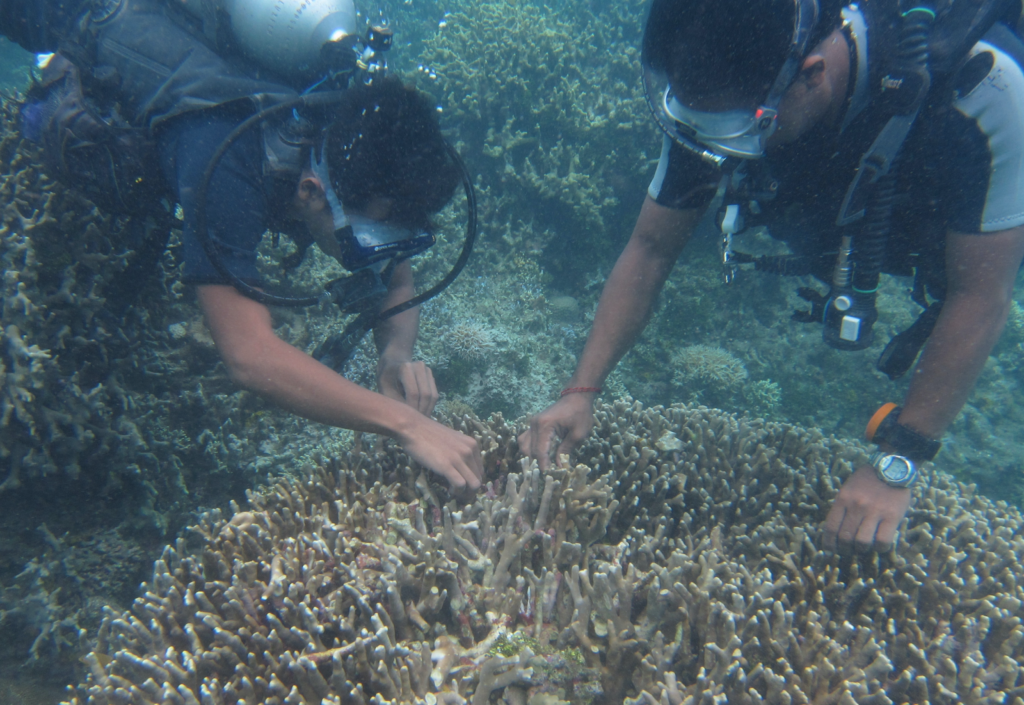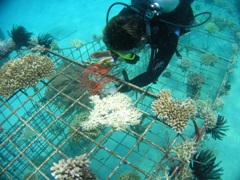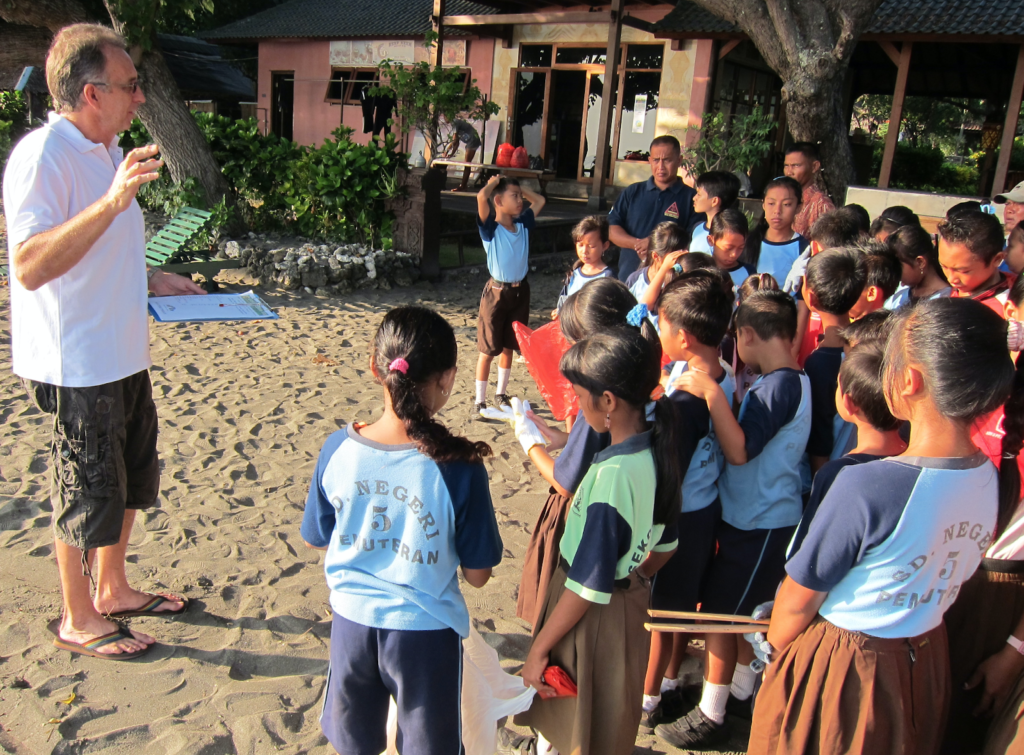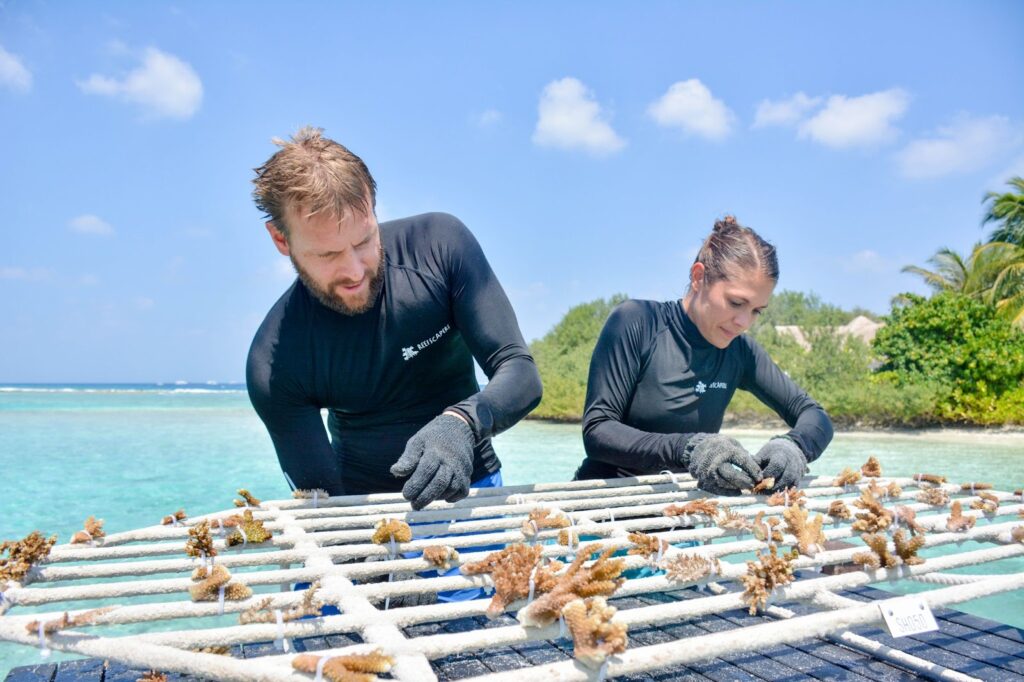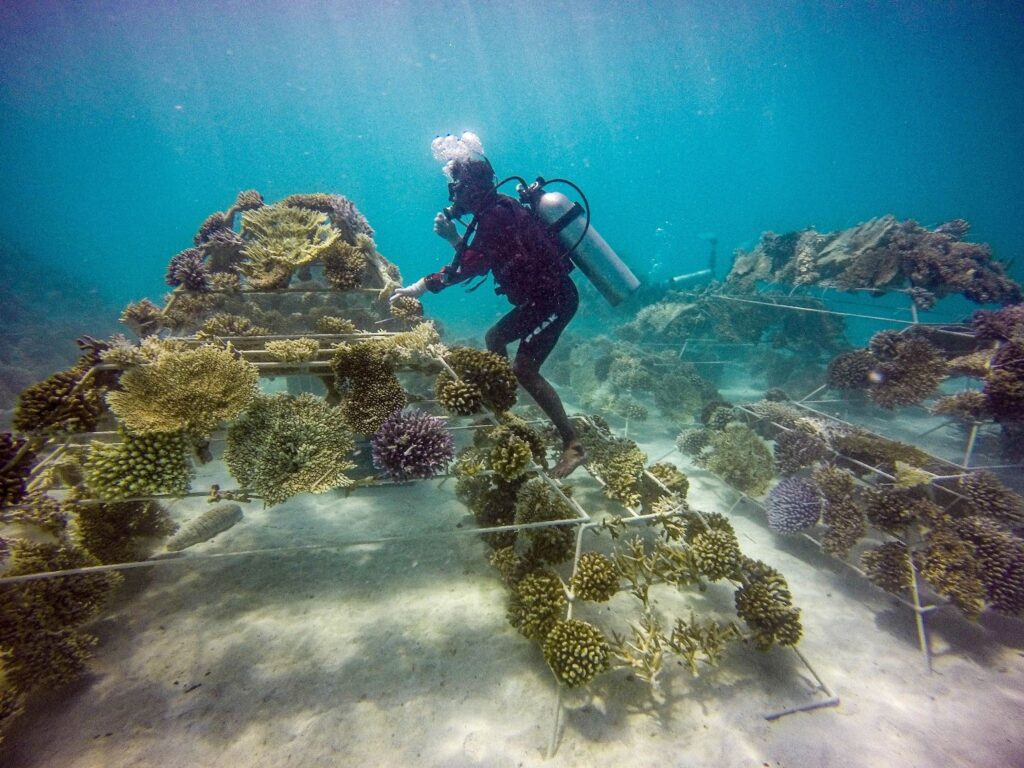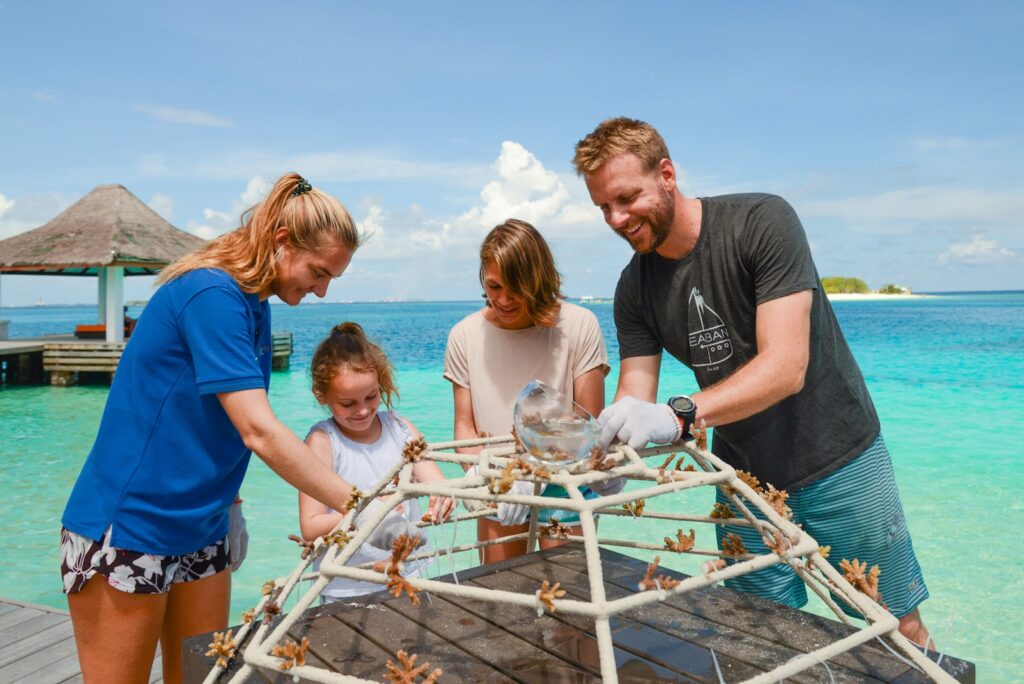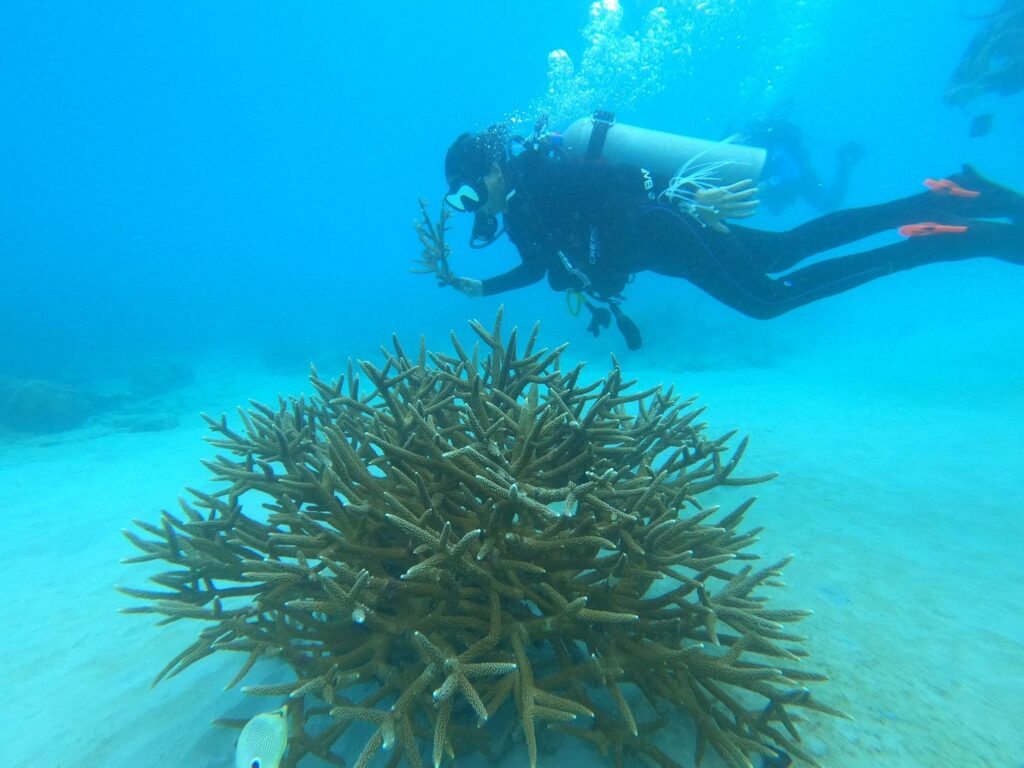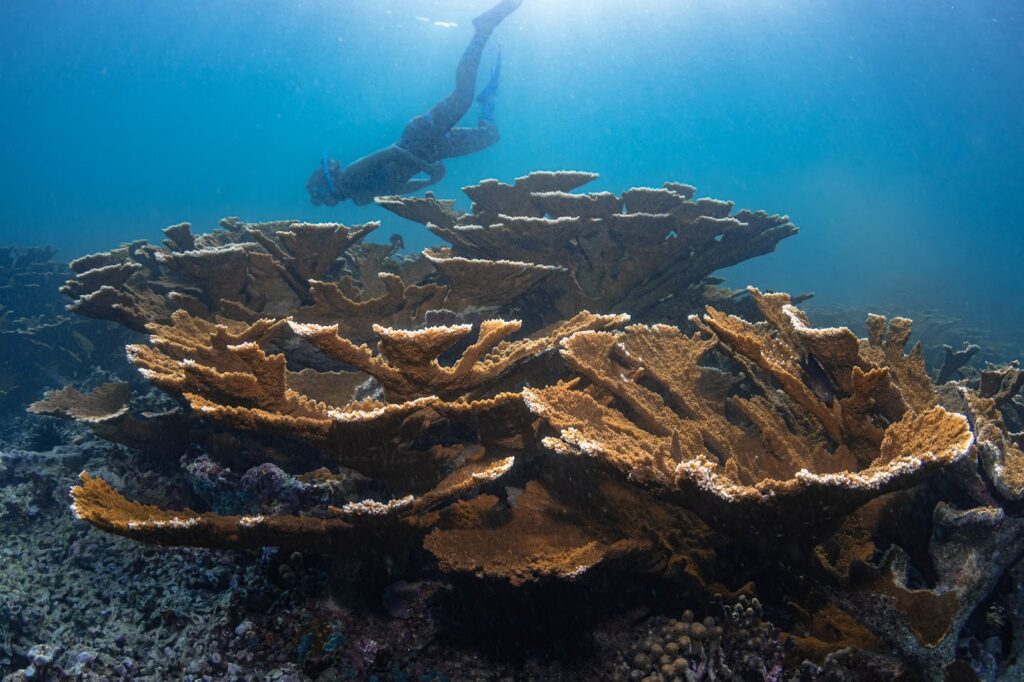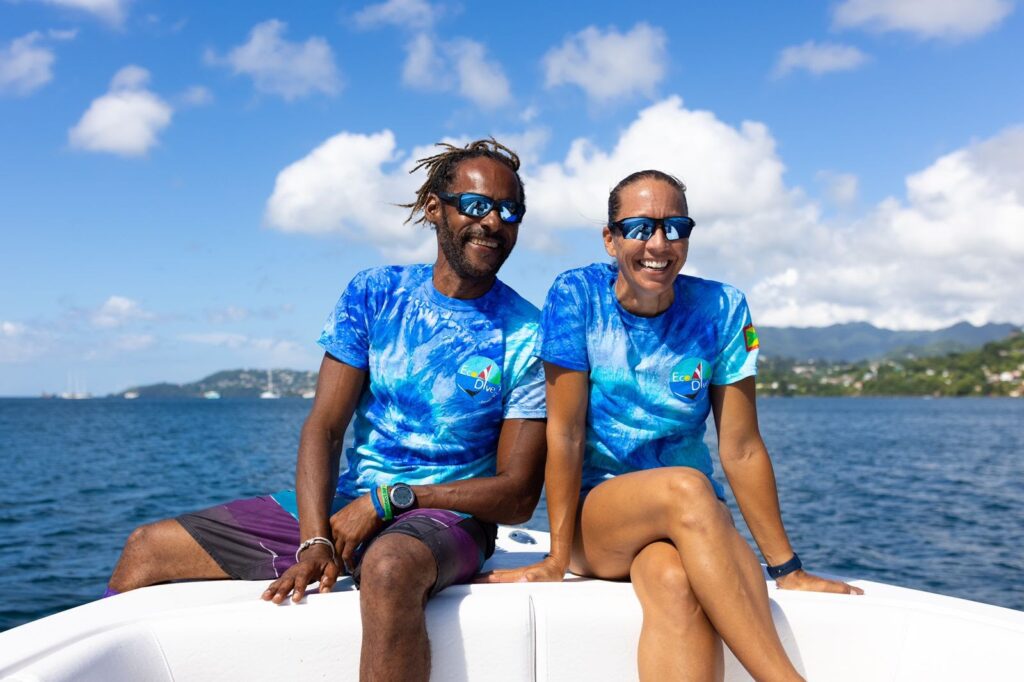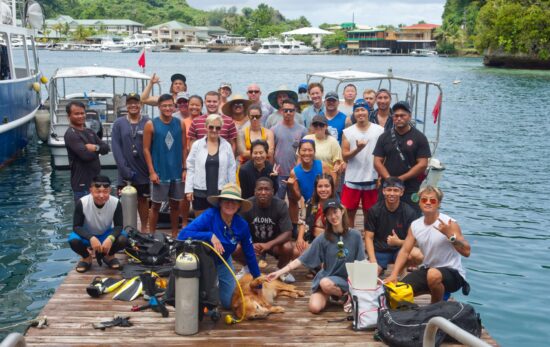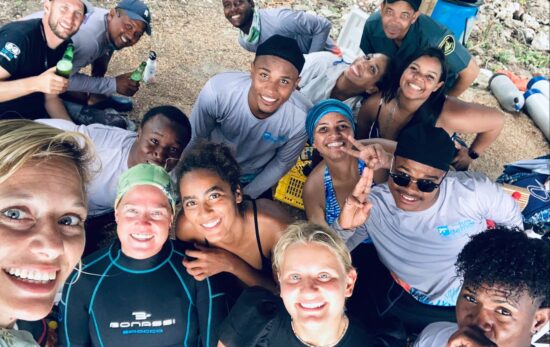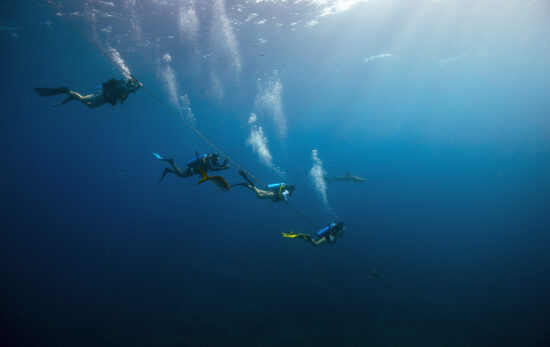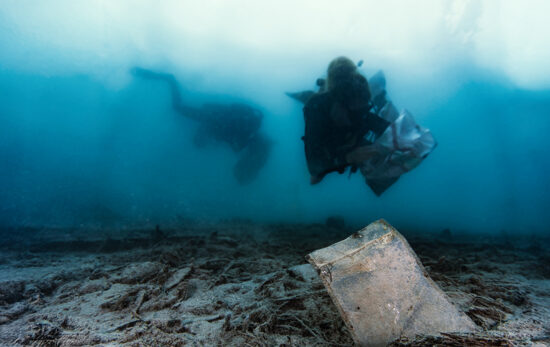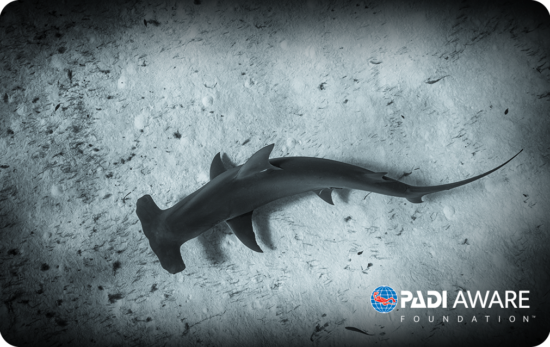Passionate PADI Dive Centers, Resorts and Professionals around the world are leading the global effort to recover and restore coral reefs.
We caught up with just three of them to learn more about their efforts. To find and connect with more PADI Diver Centers and Resorts in your region that are tackling coral conservation, head to the PADI Dive Shop Locator or Conservation Activities Locator.
Coral Conservation at Reef Seen Bali
As a PADI Dive Resort, Reef Seen Bali specializes in helping divers to improve their skills. However, this philosophy is not limited to only diving skills, but also a deep understanding of how people can affect the underwater world, so that we may better appreciate nature. Reef Seen has developed a process for protecting and repairing local corals which they have titled “Reef Gardening“.
Since the late ’90s, Reef Seen has incorporated an eco philosophy into all their dive briefings and dives. Hence educating divers whilst conserving the incredible beauty of the underwater worlds of Pemuteran Bay and Menjangan Island. Through their coral conservation practices, they have created many new dive sites such as “The Underwater Temple Garden & Temple Wall”, “Bio-Wreck Reef”, and “Underwater Garden Of the Gods” to provide greater coral diversity and protect the natural reefs. To learn more about their dedicated Coral Reef Conservation efforts, visit their website.
Adopt a Coral at Sheraton Maldives Full Moon Resort & Spa
Adopt a Coral at Sheraton Maldives Full Moon Resort & Spa invites guests to participate in their fun and interactive coral-fragment planting activity to promote reef habitats and generate new coral. The resort has teamed up with Reefscapers, a coral propagation organization appointed by the Maldivian government as custodians of the coral colonies in the Gulhi Falhu lagoon, which was slated to be destroyed as part of a reclamation project. The activity is led by experts and offers hands-on experience to participants while also providing an alternative form of business to the 250 inhabitants whose sole previous source of employment was fishing.
In early 2021, in conjunction with Earth Day in April, Sheraton Maldives Full Moon Resort & Spa planted its 100th coral frame, a milestone in the resort’s coral propagation initiative that started in February 2020. Over 5,619 coral fragments from 15 different species of corals have been transplanted as one of the most significant man-made coral structures in the Maldives. The program echoes Marriott International’s “Good Travel with Marriott Bonvoy” initiative across the Asia Pacific region, providing first-hand connections with local communities and the environment.
“We observed that there’s an increase in fish returning to our house reef since we started the coral propagation initiative, proof that the program is working. We will continue making this a key priority for our community at the resort,” said Emilio Fortini, General Manager.
Amélie, the Reefscapers Marine Biologist at the Sheraton Full Moon Resort and Spa, is a PADI Dive Master. She obtained her PADI Divemaster in Utila, Honduras, in 2017. This training provided the skills necessary to be comfortable underwater for the coral restoration project and train Reefscapers interns every six months.
Coral Conservation with Barbados Blue Watersports and Eco Dive Grenada
Christie and Andre’s story on coral transplantation and restoration started in 2001 when the Barbados Port was being expanded. The engineers said there was a “reef” in the harbor which they had to build on, and based on the daily activities of the port, it could easily be assumed the reef was in imminent danger. So when they went diving in the harbor, they were amazed by the health, size, and robust nature of the portside reef. They explain, “We even found thriving staghorn corals which had been largely exempt along the west and south coasts of Barbados at that time.”
Two lessons were learned in the process:
- Eliminating fishing pressure on the Harbor Reef (or any coral reef) for several years increased reef resilience so much that the reef was able to deal with poorer water quality as a result of bilges, drainage, and heavy sedimentation.
- Coral transplantation and restoration could be a valuable conservation management tool, as the majority of the corals not only survived but became the donor site for the PADI Coral Reef First Aid classes 16 years later.
Today, the Barbados Harbor Coral Restoration Project remains the largest successful coral reef transplantation exercise in the Southern Caribbean.
“I love to show returning divers ‘their’ corals which were saved and outplanted years before, it’s like they now have a permanent connection to the islands” explains Andre Miller, PADI Ambassadiver and coral restoration project co-founder based at PADI 5* Dive Resort Barbados Blue Watersports.
The project’s other co-founder Christie Finney, current owner and manager of Eco Diver Grenada expands, “As marine biologists, I believe we have a responsibility to protect our reefs and educate beyond scuba skills. We need to stay engaged with our communities and aware of our changing marine environments. During the COVID travel interruption of 2020 the newest virulent coral disease, Stony Coral Tissue Loss Disease (SCTLD) was confirmed as far south as St Lucia, our northern neighbor, having made its way down from the Florida Keys. It’s threats like these that need the help of our divers to learn about and monitor. We cannot eliminate threats to our reefs, but we can help control them, we can be proactive and be active participants in the solution. Join us in making every dive count above and beyond a beautiful adventure”
AWARE Coral Reef Conservation Course
The PADI AWARE Coral Reef Conservation Specialty course informs divers and non-divers about the plight of the world’s coral reefs. The course describes how coral reefs function and why they are so important. It also reviews why many reefs are in serious trouble and what individuals can do to prevent further decline. Most divers, snorkelers and environmental enthusiasts have already visited or plan to visit a coral reef. The Coral Reef Conservation Specialty course provides the knowledge base for proper interaction while touring a reef.

